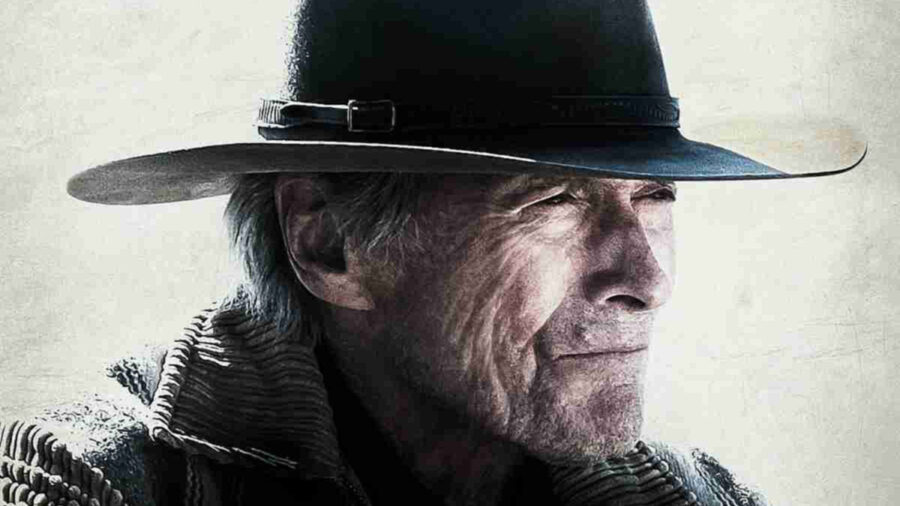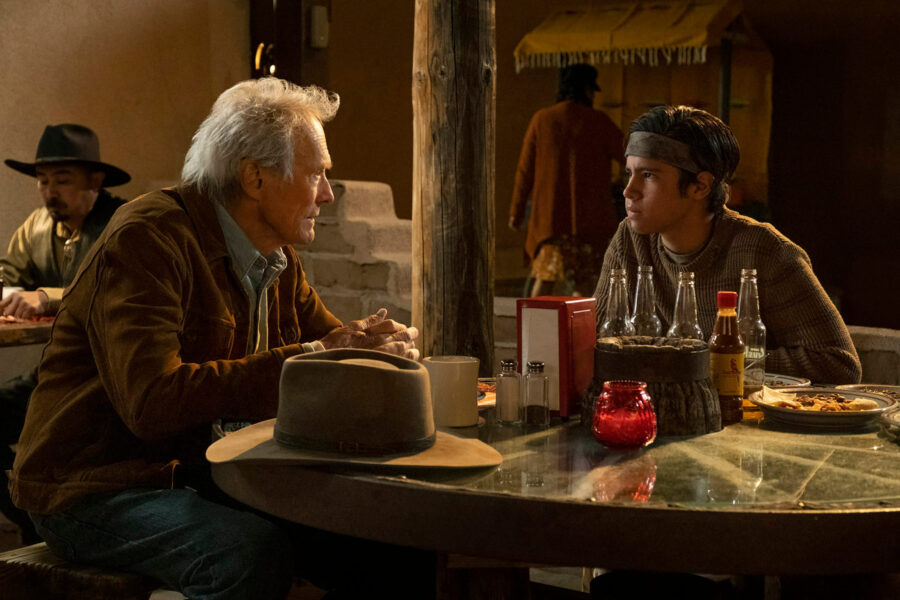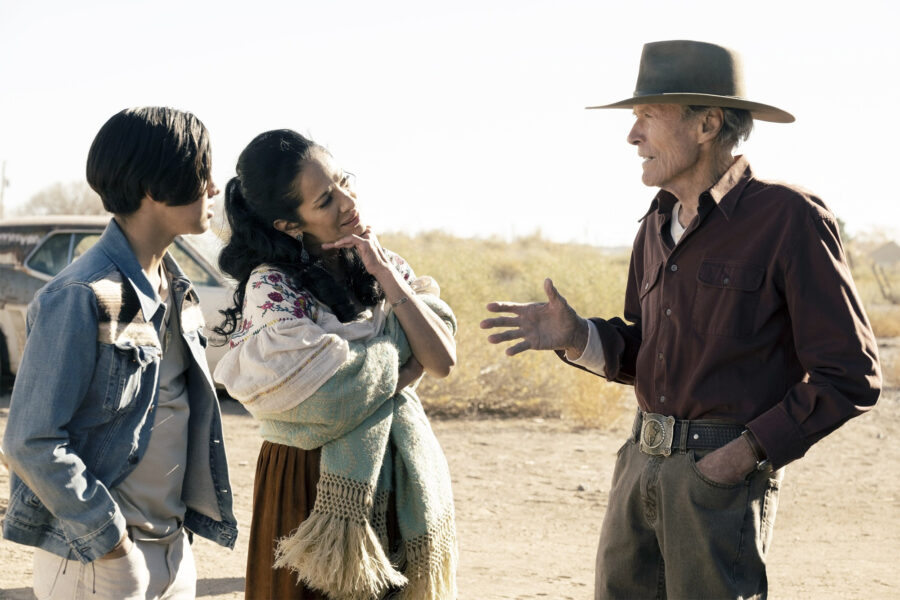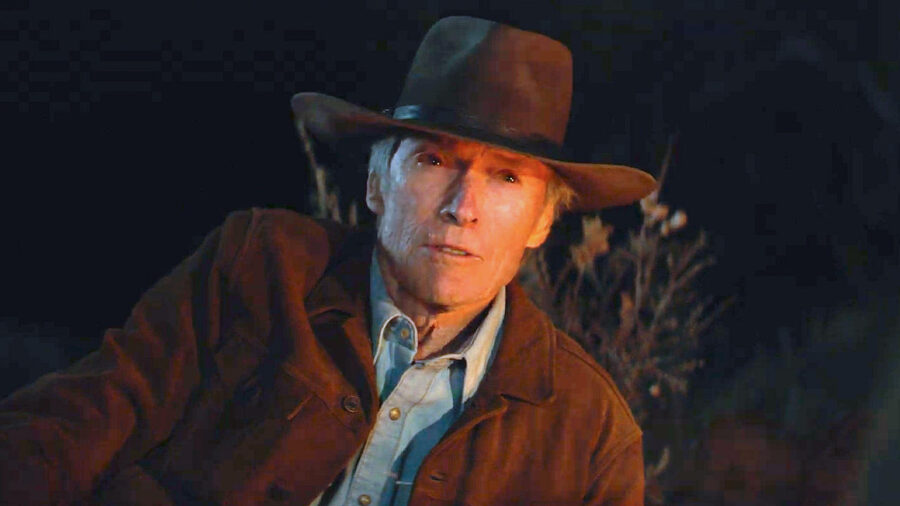Cry Macho Review: Clint Eastwood Gets A Sentimental Swan Song
Clint Eastwood says goodbye.
This article is more than 2 years old

Clint Eastwood has more than cemented his reputation as one of the leading figures in macho cinema. His incredible run of Westerns in the ’60s and ’70s are absolute cornerstones of the genre, and his directorial work has been equally impressive and influential over the years. It is fair to say that he is viewed as an incredibly masculine figure that symbolizes so much of what a lot of traditional masculinity has built itself around: stoicism, effortless cool, and a gruff exterior with the promise that messing with a man like him means you are in for some serious trouble.
There is undoubtedly recognition of this in Cry Macho, the newest directing and starring effort from Clint Eastwood. And this recognition comes with a clear desire to reevaluate Eastwood’s own persona and what he has learned over the course of his career by playing these kinds of characters and putting them out into the world. His character, Mike Milo, is an old ranchhand and rodeo performer who broke his back many years ago and is clearly in the twilight of his life. When Mike’s boss (Dwight Yoakam) calls upon him to go to Mexico to collect his son, Mike is met with a coarse but wounded young man named Rafa (Eduardo Minett) and the two set out across Mexico on their way back to Texas.
Clint Eastwood uses the character of Mike Milo to reflect on his own history of presenting a tough and cool exterior in his films. Rafa’s pet rooster is named Macho and Rafa takes great pride in him being a fighter and a champion in cockfighting. Mike shows Rafa that being “macho” isn’t all it’s cracked up to be. Mike professes a love for animals thanks to years working with them in different professions, and it’s in breaking horses and tending to animals that Rafa begins to admire the kind of man Mike really is. This is a movie where the focus of Eastwood’s character is much more on sentimental moments rather than badass ones.

And as usual, Clint Eastwood is undeniably a solid director. Cry Macho is a good-looking movie with plenty of wonderful location shoots and exteriors. Early in Mike’s sojourn into Mexico, he camps outside at dusk, and the magic hour horizon silhouettes Eastwood in gorgeous fashion. Cry Macho isn’t too showy with its filmmaking, but it is always nice to see a seemingly real movie after the deluge of digital eyesores we get from most major studio productions.
As far as the story goes, it’s not got a whole lot of surprises along the way but Clint Eastwood is able to anchor the movie with his direction and acting. The pacing is consistent if sometimes a little purposefully sleepy, but it rarely falls into the territory of being outright boring.
There are a few issues with Cry Macho. Clint Eastwood is delivering a fine performance, but his co-star Eduardo Minett isn’t quite up to the challenge of making Rafa feel like a complete character. That might also be the fault of the screenplay credited to Nick Schenk and N. Richard Nash (based on Nash’s novel). Rafa should be the real heart and conflict of the movie but Minett can’t quite elevate the role in the way it needs.

And those who find fault with Clint Eastwood’s social and political standings will definitely have plenty to work with in Cry Macho. There are only two prominent female characters in the story and they are polar opposites in every way. One is Rafa’s mother (Fernanda Urrejola), a conniving and seductive figure who gets two scenes and hardly any depth beyond being an inciting point for conflict by sending her men to take Rafa back. The other woman in the film is Marta (Natalia Traven), a kindly diner owner who is completely maternal to both Mike and Rafa from the instant she sees them. Of course, she ends up being Mike’s love interest. So anyone looking for more complex female characters will have to look elsewhere.
What comes out a little less unfortunate in representation is Mexico and its people. Clint Eastwood can’t help but showcase a lot of boring stereotypes about Mexican life and culture, but it at least seems to have some desire to leave with a warm feeling about a certain kind of Mexican representation. For as many corrupt cops and crooked goons we get, there is an equal number of kind townsfolk and helpful citizens. It’s not a progressive viewpoint at all but it’s nowhere near the most troublesome depictions you’ll see in one of Eastwood’s flicks.
Maybe the most muddled thing about Cry Macho is its ending. No spoilers but the movie crescendos to a moment that has been heavily shown in the film’s marketing where Clint Eastwood dispels a lot of notions about so-called machismo. And it feels totally earned as we’ve watched Mike be a far more kindly and soft man than one might expect. But immediately after this speech, Mike is thrown into a situation where he has to be a tough guy and the day is saved by none other than Macho the rooster himself. And the final moments seem to imply that Mike needs to hold onto Macho (read: some part of his macho past) with no little amount of care. It’s an ending that wants to appear gentle and resigned but symbolically argues for the opposite.

Still, Cry Macho really does come across as Clint Eastwood saying goodbye to the kind of character that made him a superstar. It’s a movie that has plenty of warm moments and it works more than it doesn’t. It’s very possible we’ll see Eastwood in a starring role after this, but if we didn’t, Cry Macho is a fond enough farewell to a Hollywood titan.













